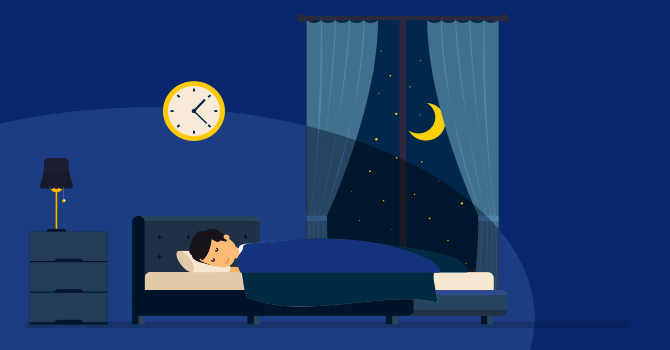
IMG via creakyjoints.org
The healthiness of napping has been debated for years. While some depend on an afternoon snooze to make it through the day, others avoid napping for fear of interfering with sleep schedules or curtailing productivity. Let’s think twice: is napping good for you?
Napping is linked to cardiovascular benefits. A 2007 study of self-reported sleep habits among 23,000 individuals found that, controlling for other self-reported factors such as smoking status, BMI, and activity level, those who reported regular napping had 37% lower coronary mortality, while those who napped occasionally experienced 12% lower coronary mortality (1).
In contrast, a systematic review of 7 prospective observational studies of sleep found that longer naps were associated with a higher risk of cardiovascular disease (2). And a 2022 study of 350,000 participants in the UK’s Biobank longitudinal database found that increased nap frequency was associated with a 12% higher risk of stroke and 24% higher risk of hypertension (3).
Given the conflicting results, and potential for factors that are not accounted for, a longitudinal study that objectively measures daytime sleep and follows people over many years is needed to study the relationship between napping and cardiovascular health.
Along with cardiovascular health, napping is linked to cognitive benefits. A recent systematic review of studies with comparative cohorts found that napping was associated with better memory, vigilance, and speed of processing (4). Furthermore, in one of the few randomized studies, a small set of 32 young adults were randomized to 10-minute, 30-minute, or 60-minute naps and found that napping was associated with better memory and vigilance and longer naps were associated with greater sleepiness after napping (often referred to as sleep inertia) (5).
Another systematic review included 18 longitudinal and cross-sectional studies among people aged 60 and older and found no association between napping and cognition or memory (6). While napping may provide some cardiovascular and cognitive benefits, there are inconsistencies and shortcomings in the current evidence. Randomized trials would help determine the association of napping with improved cognition, especially in populations that may be experiencing cognitive decline.
References:
- Naska, A., Oikonomou, E., Trichopoulou, A., Psaltopoulou, T., & Trichopoulos, D. (2007). Siesta in healthy adults and coronary mortality in the general population. Archives of internal medicine, 167(3), 296–301. https://doi.org/10.1001/archinte.167.3.296 https://jamanetwork.com/journals/jamainternalmedicine/fullarticle/411678
- Yamada, T., Hara, K., Shojima, N., Yamauchi, T., & Kadowaki, T. (2015). Daytime Napping and the Risk of Cardiovascular Disease and All-Cause Mortality: A Prospective Study and Dose-Response Meta-Analysis. Sleep, 38(12), 1945–1953. https://doi.org/10.5665/sleep.5246 https://www.ncbi.nlm.nih.gov/pmc/articles/PMC4667384/#:~:text=In%20conclusion%2C%20a%20longer%20nap,time%20and%20all%2Dcause%20mortality.
- Yang, M. J., Zhang, Z., Wang, Y. J., Li, J. C., Guo, Q. L., Chen, X., & Wang, E. (2022). Association of Nap Frequency With Hypertension or Ischemic Stroke Supported by Prospective Cohort Data and Mendelian Randomization in Predominantly Middle-Aged European Subjects. Hypertension (Dallas, Tex. : 1979), 79(9), 1962–1970. https://doi.org/10.1161/HYPERTENSIONAHA.122.19120 https://www.ahajournals.org/doi/full/10.1161/HYPERTENSIONAHA.122.19120
- Leong, R. L. F., Lo, J. C., & Chee, M. W. L. (2022). Systematic review and meta-analyses on the effects of afternoon napping on cognition. Sleep medicine reviews, 65, 101666. https://doi.org/10.1016/j.smrv.2022.101666 https://www.sciencedirect.com/science/article/pii/S108707922200079X?via%3Dihub
- Leong, R. L. F., Lau, T., Dicom, A. R., Teo, T. B., Ong, J. L., & Chee, M. W. L. (2023). Influence of mid-afternoon nap duration and sleep parameters on memory encoding, mood, processing speed, and vigilance. Sleep, 46(4), zsad025. https://doi.org/10.1093/sleep/zsad025 https://academic.oup.com/sleep/article/46/4/zsad025/7034889
- Álvarez-Bueno, C., Mesas, A. E., Reina-Gutierrez, S., Saz-Lara, A., Jimenez-Lopez, E., & Martinez-Vizcaino, V. (2022). Napping and cognitive decline: a systematic review and meta-analysis of observational studies. BMC geriatrics, 22(1), 756. https://doi.org/10.1186/s12877-022-03436-2 https://www.ncbi.nlm.nih.gov/pmc/articles/PMC9479293/

